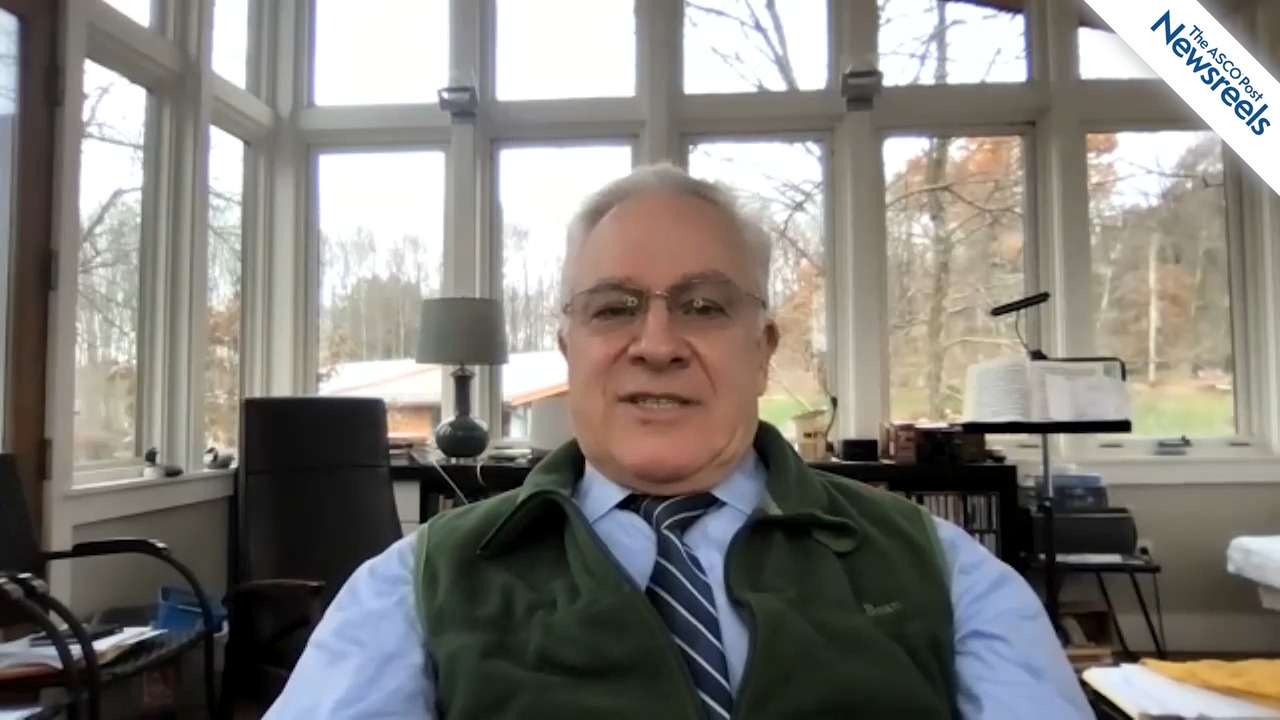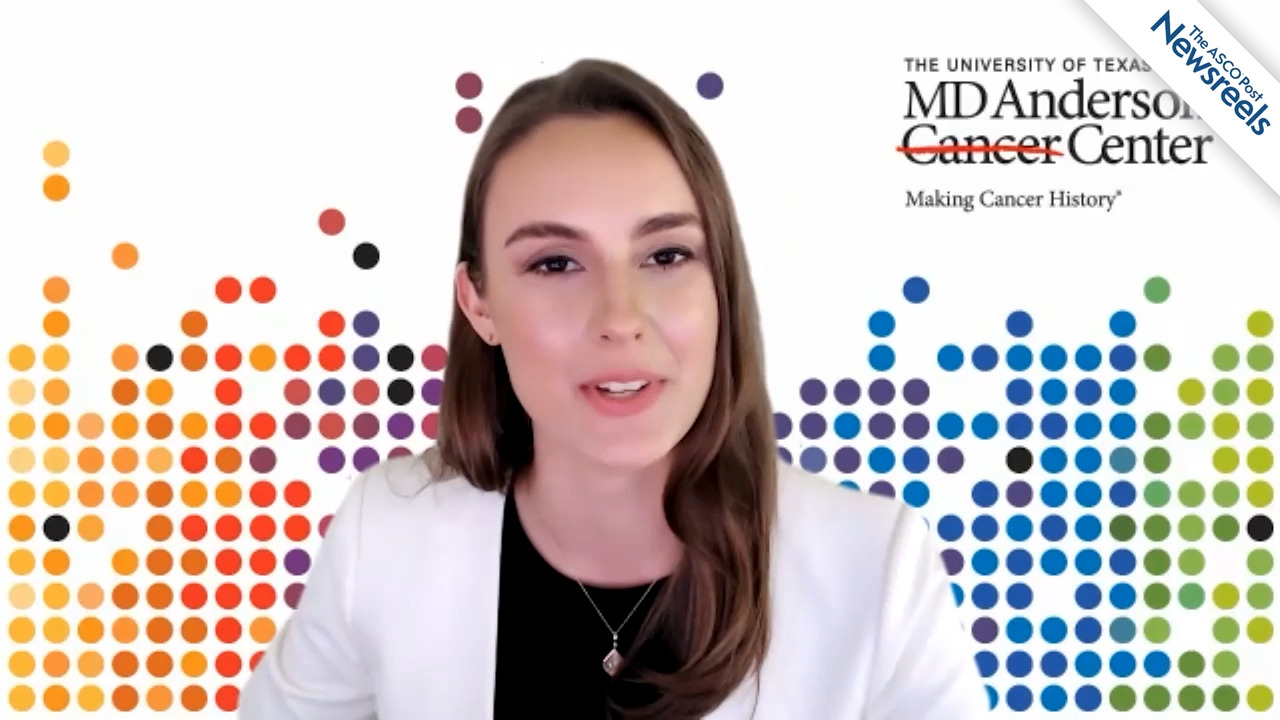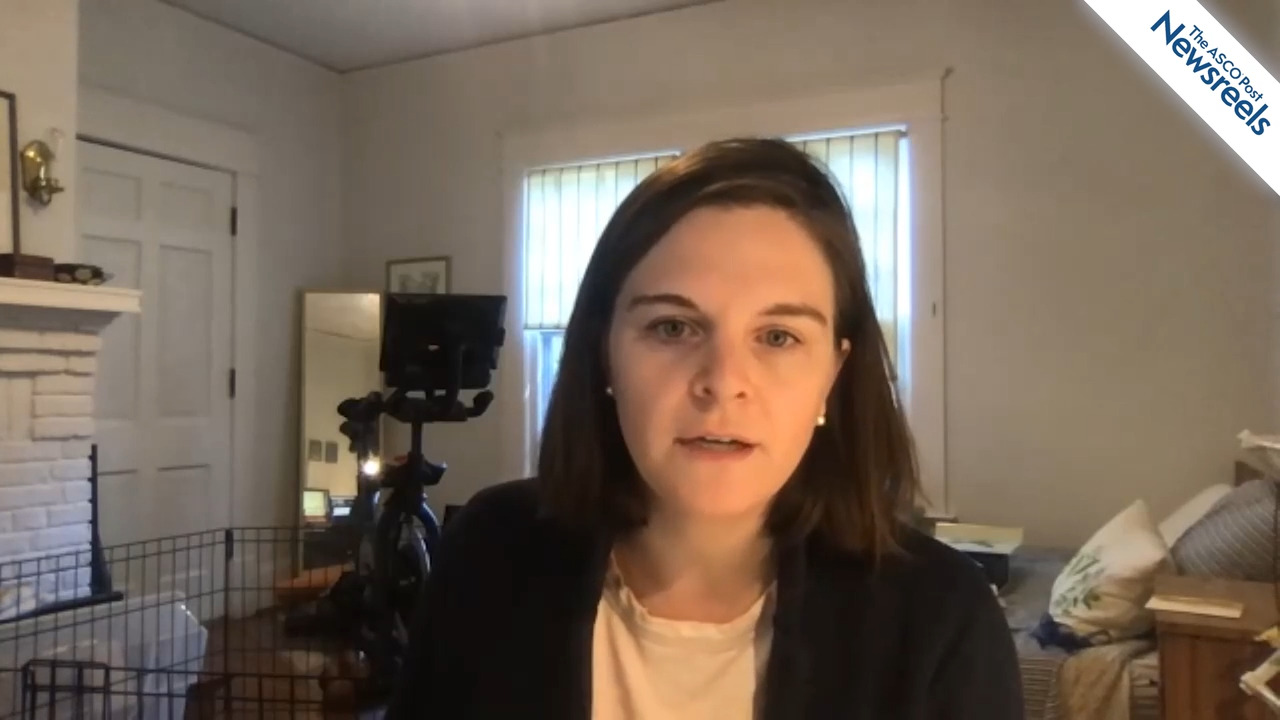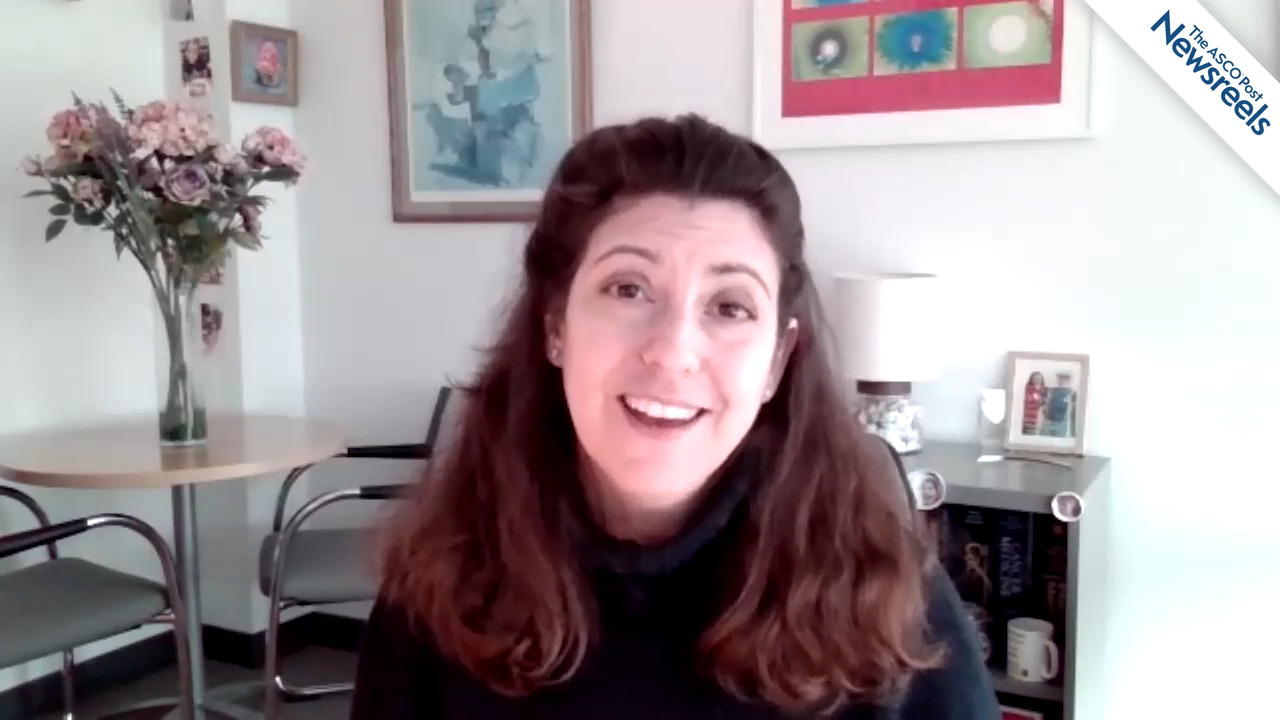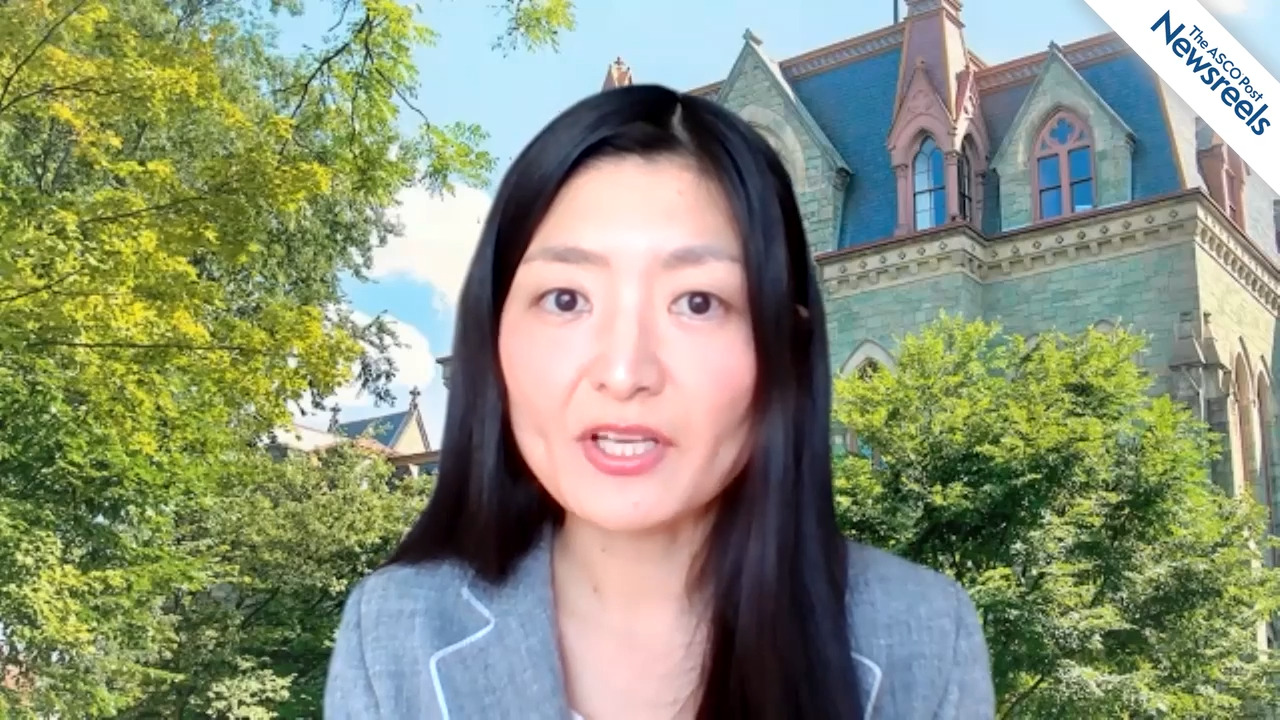Hans Wildiers, MD, on Metastatic Breast Cancer: Comparing Addition of Eftilagimod Alpha vs Placebo to Paclitaxel
SITC 2021
Hans Wildiers, MD, of University Hospitals Leuven, discusses the final results from the phase IIb AIPAC study, which suggested that eftilagimod added to paclitaxel may be of benefit to patients older than 65 years with hormone receptor–positive, HER2-negative metastatic breast cancer after endocrine-based therapy. Eftilagimod, which is a first-in-class antigen presenting cell activator, appeared to increase circulating CD4/CD8 T cells, which correlated to improved overall survival (Abstract 948).
The ASCO Post Staff
John M. Kirkwood, MD, of the University of Pittsburgh Medical Center, discusses phase Ib findings on the combination of vidutolimod plus pembrolizumab, as well as vidutolimod monotherapy, both of which showed clinical activity in patients with PD-1 blockade–refractory melanoma. The duration of response with the combination therapy was substantially longer. Phase II studies are ongoing (Abstract 950).
The ASCO Post Staff
Stephanie T. Schmidt, PhD, of The University of Texas MD Anderson Cancer Center, discusses the first integrated examination of the immunomodulatory effects of neoadjuvant chemotherapy, nivolumab, and nivolumab plus chemotherapy in resected non–small cell lung cancer (Abstract 962).
The ASCO Post Staff
Hannah E. Dzimitrowicz, MD, of Duke Cancer Center, discusses study results showing that in patients with melanoma and renal cell cancer receiving immune checkpoint inhibitor therapy, the COVID-19 vaccination appears to be well tolerated and safe. A higher rate of post-vaccination symptoms reported in these patients is likely related to more frequent visits compared with controls (Abstract 625).
The ASCO Post Staff
Kim A. Reiss, MD, of the University of Pennsylvania, discusses results of a phase I trial of a CAR-M engineered macrophage cancer therapy, known as CT-0508, for patients with solid tumors that overexpress HER2. CAR-M, designed to exploit the natural role of macrophages to initiate an antitumor response, is currently under study at multiple clinical sites (Abstract 951).
The ASCO Post Staff
Yuki Muroyama, MD, PhD, of the University of Pennsylvania Perelman School of Medicine, discusses the interaction between the immune system and a novel marker—T-cell DNA damage and repair response—to understand how that interaction may affect immune cell biology and therapeutic response (Abstract 310).
